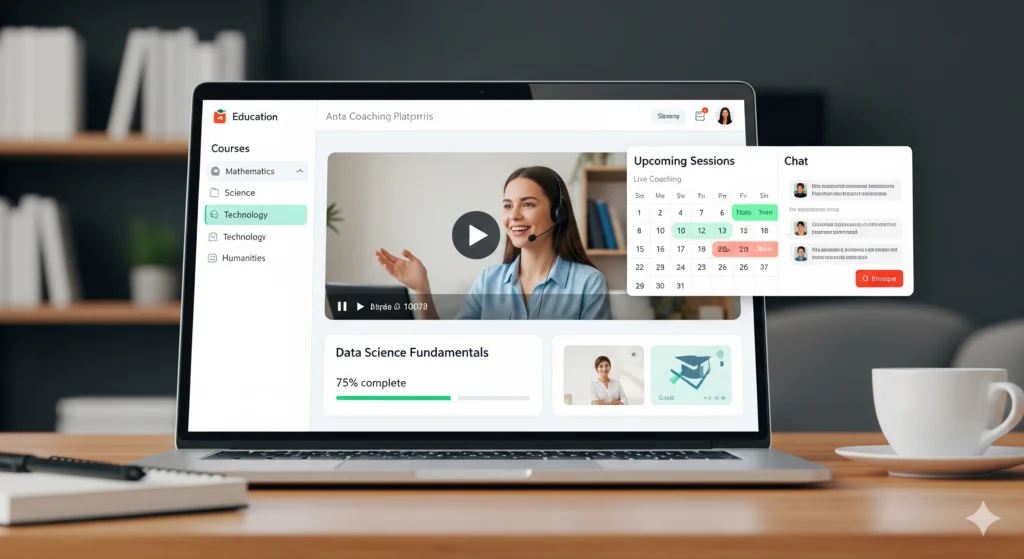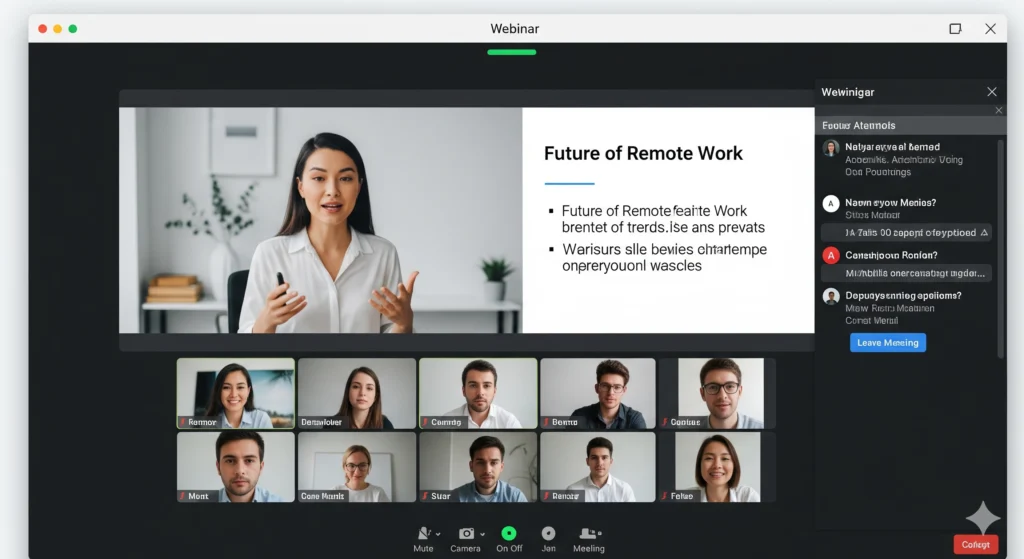
The rapid evolution of the internet and digital technology has transformed almost every aspect of human life, and one of the most significant changes has been in the field of education. Online education and coaching platforms have become powerful tools that provide students, professionals, and lifelong learners with access to quality education anytime and anywhere. From live interactive classrooms to recorded lectures, from personalized coaching sessions to large-scale learning management systems, these platforms are reshaping the way knowledge is shared and acquired. Unlike traditional brick-and-mortar institutions, online platforms break geographical and financial barriers, making education more inclusive, flexible, and adaptive to individual needs. The COVID-19 pandemic further accelerated the adoption of online learning, pushing schools, universities, and private educators to embrace digital classrooms as the new normal. Today, the global online education industry is booming, with millions of learners relying on platforms such as Coursera, Udemy, Khan Academy, Skillshare, Vedantu, and BYJU’S to enhance their knowledge and skills.
Growth and Evolution of Online Education
Online education began with simple correspondence courses and email-based lessons, but it has grown into a sophisticated ecosystem powered by advanced technology. Early e-learning platforms offered text-based resources and pre-recorded lectures. Over time, they evolved into interactive, multimedia-rich platforms with video content, gamified learning, AI-driven assessments, and personalized recommendations. Cloud computing, faster internet speeds, and affordable smartphones have made online education accessible to billions worldwide. The market growth is impressive, with reports estimating that the online education industry will surpass hundreds of billions of dollars in the coming years. Governments, schools, and private investors are continuously supporting the development of EdTech startups, further fueling innovation. Today, online education is no longer seen as a secondary option but rather as a mainstream mode of learning that complements or even replaces traditional classroom teaching in many contexts.
Advantages of Online Education and Coaching Platforms
One of the biggest reasons behind the popularity of online education is the wide range of advantages it offers to learners and educators.
Accessibility and Flexibility
Learners can access courses from any part of the world, at any time, and at their own pace. This flexibility is particularly valuable for working professionals, parents, or students with busy schedules.
Cost-Effectiveness
Compared to traditional education, online courses are often more affordable. Many platforms even provide free content, scholarships, or subscription-based models that make high-quality education more affordable and sustainable.
Variety of Courses and Subjects
Whether someone wants to learn coding, graphic design, business management, languages, or even personal development skills, there is a vast variety of courses available online. Specialized coaching platforms also cater to competitive exams, career advancement, and niche industries.
Personalized Learning Experience
Many platforms use artificial intelligence and machine learning algorithms to recommend customized learning paths based on user progress, interests, and goals. Students can also interact directly with instructors, join discussion forums, and access personalized mentorship.
Global Networking Opportunities
Online platforms connect learners with peers, mentors, and experts worldwide. This builds communities of practice and exposes learners to different cultural and professional perspectives.

Role of Technology in Online Coaching Platforms
Technology is the backbone of online education and coaching platforms. Features such as high-definition video streaming, real-time chat, interactive quizzes, and digital whiteboards replicate classroom experiences virtually. Cloud-based systems ensure that learners can save progress and resume learning anytime. Mobile applications provide education on the go, while advanced technologies such as virtual reality (VR) and augmented reality (AR) make subjects like science and engineering more immersive. Artificial intelligence (AI) also plays a crucial role by providing automated grading, identifying learning gaps, and offering smart tutoring assistance. Gamification techniques such as badges, leaderboards, and rewards increase student motivation.
Popular Online Education Models
Online education platforms adopt different models to cater to diverse audiences:
- Massive Open Online Courses (MOOCs): Platforms like Coursera, edX, and Khan Academy provide large-scale courses with free or affordable access.
- Subscription-Based Platforms: Websites like Skillshare and LinkedIn Learning offer unlimited access to courses for a monthly or yearly fee.
- One-on-One Coaching: Platforms such as Preply or Vedantu allow students to connect directly with tutors for personalized learning.
- Exam Preparation Platforms: BYJU’S, Unacademy, and Testbook focus on competitive exams, providing structured learning paths, mock tests, and live coaching.
- Corporate Learning Solutions: Companies use platforms like Udemy for Business or Coursera for Teams to upskill their employees.
Impact of Online Education on Traditional Learning
The rise of online education has reshaped the traditional education landscape. Schools and universities have adopted hybrid learning models where online and offline methods are blended to maximize efficiency. Online coaching also reduces dependency on physical coaching centers, allowing students from rural or remote areas to access top-quality educators. Teachers, too, are benefiting from new revenue streams as they can reach a global audience. However, this shift has also raised concerns about digital equity, with students from economically disadvantaged backgrounds facing challenges in accessing devices and stable internet connections.
Challenges of Online Education Platforms
While online learning has numerous advantages, it is not without challenges.
Digital Divide
Not everyone has access to high-speed internet or devices required for effective online learning, leading to inequality.
Lack of Physical Interaction
Unlike traditional classrooms, online learning lacks face-to-face interactions, which can reduce engagement, motivation, and social bonding.
Quality Assurance
With so many platforms and courses available, it can be difficult to judge the quality and credibility of content. Accreditation and standardization remain ongoing concerns.
Distractions and Self-Discipline
Since online learning is often self-paced, learners need strong self-discipline and motivation to complete courses without dropping out.
Data Privacy and Security
The growing use of online platforms raises concerns about data security, as personal and financial information is often collected.
Future of Online Education and Coaching Platforms
The future of online education looks promising and full of innovation. Artificial intelligence will play an even larger role, providing hyper-personalized coaching experiences. Virtual reality classrooms will allow learners to explore historical sites, laboratories, and workplaces in immersive ways. Blockchain technology may ensure secure certifications and reduce fraud. The integration of microlearning—short, focused lessons—will cater to busy professionals. Moreover, as 5G technology expands globally, internet speeds will improve, making online learning more seamless. Governments and institutions are also working toward creating policies and frameworks that regulate online education, ensuring quality standards and equal opportunities for all learners.